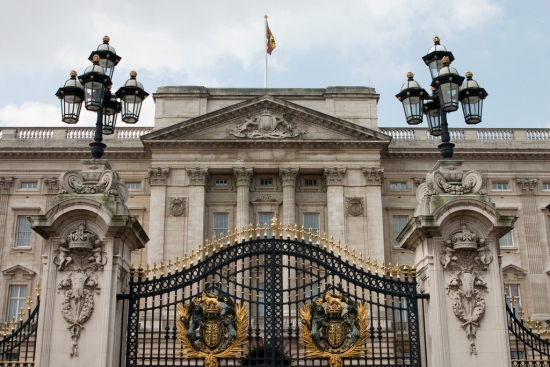Although unemployment rates have managed to stabilise since the start of 2013, many believe that this does not paint the full picture of working lives today. Due to a lack of full-time positions, a high number of workers are being forced to take on one or more part-time jobs in a bid to pay the bills, with underemployment remaining a huge issue.

Buckingham Palace is the latest employer to come under fire
This week, it has emerged that a number of firms are attempting to save money by implementing “zero hours” contracts. This basically means that staff members under these terms are not guaranteed a fixed number of hours per week, but instead pick up work based on demand.
While this could certainly be a useful initiative around holiday seasons such as Christmas or Easter, critics have argued that this method does not provide stability for workers in the long term. Furthermore, as most firms which operate this policy are not required to offer holiday or sick pay, workers faced with an unforeseen situation could find themselves without any financial backup whatsoever.
It has emerged that Sports Direct, which recently paid full-time staff extravagant bonuses following record profits, is one such employer utilising this method. More than 20,000 staff members, or 90 per cent of its work force, have signed zero hour contracts with the company – meaning that, as well as not having a guaranteed income, they missed out on the bonus scheme offered to the remaining 2,000 full-time workers.
Buckingham Palace, controversially, is using zero hour contracts. Some 350 workers employed in retail and hospitality positions during the Palace’s summer opening period are working without guaranteed hours.
However, despite this, the contract states that zero hours workers are not allowed to seek additional employment to subsidise their income without written permission from the Palace.
The issue has become so concerning that Business Secretary Vince Cable has launched an investigation into the practice. This, he claims, is because of “anecdotal evidence of abuse” by employers in both the private and public sectors.
He says; “Whilst it’s important our workforce remains flexible, it is equally important that it is treated fairly.
“This is why I have asked my officials to undertake some work over the summer to better understand how this type of contract is working in practice today.”
Yet Unison union general secretary, Dave Prentis, believes that swift action should be taken immediately to prevent employers from offering the contract, claiming they are causing damage to families.
He continues; “Zero hours contracts should be outlawed entirely.
“Many people on zero hours contracts are on the lowest wages in our economy, making them the least able to cope with financial shocks like a drastic cut in hours from one week to the next.
“This has a damaging impact on family life, and on people’s spending – bad news for our economy and our society.”
Do you believe zero hours contracts should be made illegal, or in your opinion do they allow for more flexibility in the work force in a fair way?